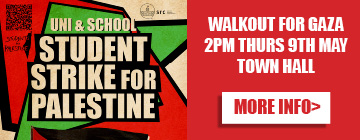In a press release released on February 16, the International Court of Justice (ICJ) rejected South Africa’s request for additional provisional measures concerning Israel’s increased bombardment of Rafah, and amidst plans for a ground invasion.
The ICJ deemed the provisional measures “indicated by the Court in its Order of 26 January 2024” applicable to the entire Gaza Strip and that the Rafah situation does not require further orders. It concluded by recalling Israel’s obligation to comply with the Genocide Convention and its interim Order.
In its statement, the Court acknowledged South Africa’s February 12 application, and Israel’s observations received on February 15. Here, Israel reiterated that South Africa’s case “is wholly unfounded in fact and law, morally repugnant, and represents an abuse both of the Genocide Convention and of the Court itself.”
Israel also denied what South Africa referred to as “a significant development in the situation in Gaza”. It argued that the provisional measures in place are relevant to Gaza “as a whole”. In doing so, they maintained that the LaGrand precedent was not applicable; in that case, interim measures had not already been put in place.
As for the ICJ itself, it did recognise the “most recent developments in the Gaza Strip, and in Rafah in particular”, by citing UN Secretary-General António Guterres’ fears of an aggravated humanitarian crisis, threatening to spill over into bordering countries and resulting in “untold” regional ramifications.
All eyes are on Rafah as despite being less than one-fifth of Gaza’s land mass, it has become the most overcrowded city in Palestine. Approximately 1.3-1.5 million Palestinians are currently sheltering in Rafah with nowhere to go. International pressure has also mounted as attacks have escalated in the south of Lebanon, with increased fears that negotiations for a ceasefire are no longer viable.






